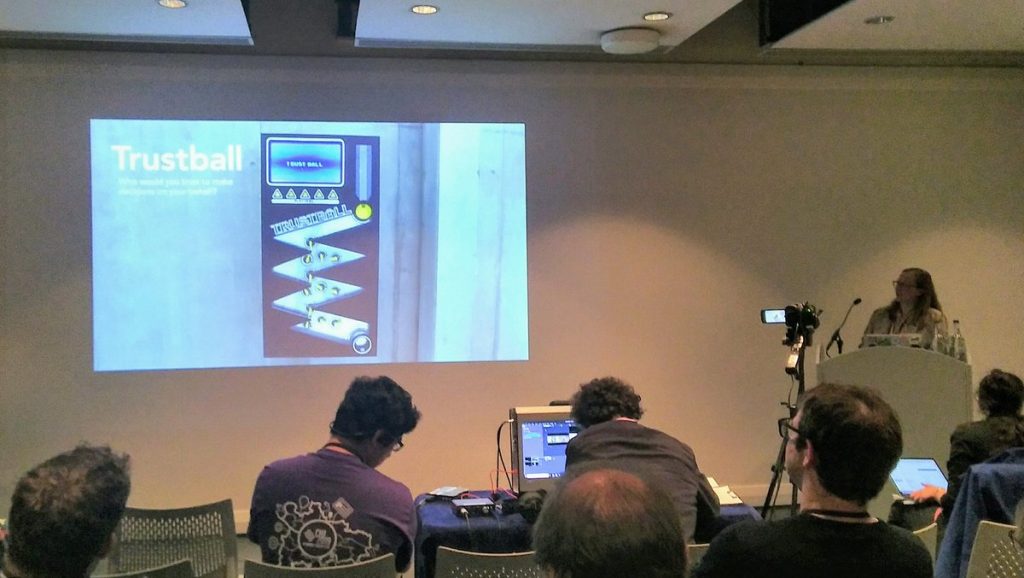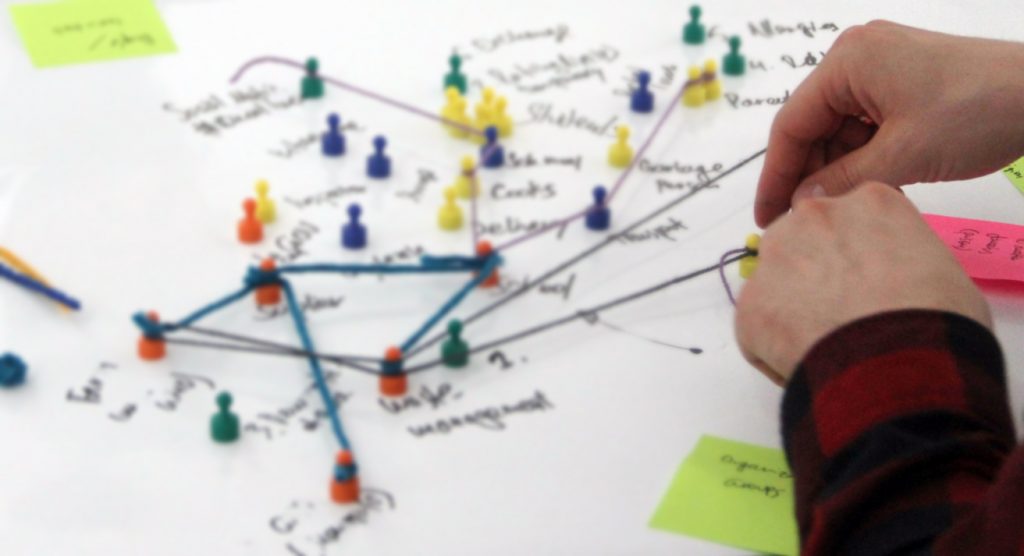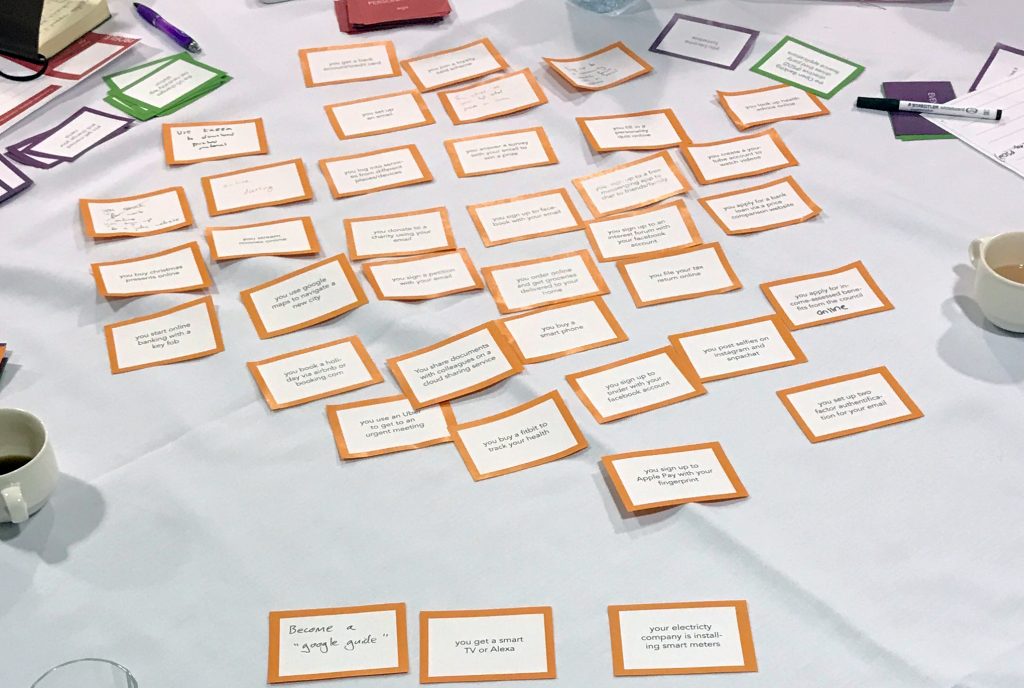As part of the Edinburgh Festival, we have developed a public installation to explore issues of trust and consent in digital systems with the general public. Installed in the Design Informatics Pavilion “Data Pipe Dreams: Glimpses of a Near Future”, Trustball aims to playfully engage audiences with the fairly dry topic of agreeing to Terms and Conditions. We are all familiar with and are regularly signing up to new services, websites or apps online which prompt us to accept the Terms of Services (ToS). These have become increasingly complex and their details are often opaque to the user. A quick one-click act of consenting to complex legal jargon in a hidden fine print has become an accepted practice for most users.
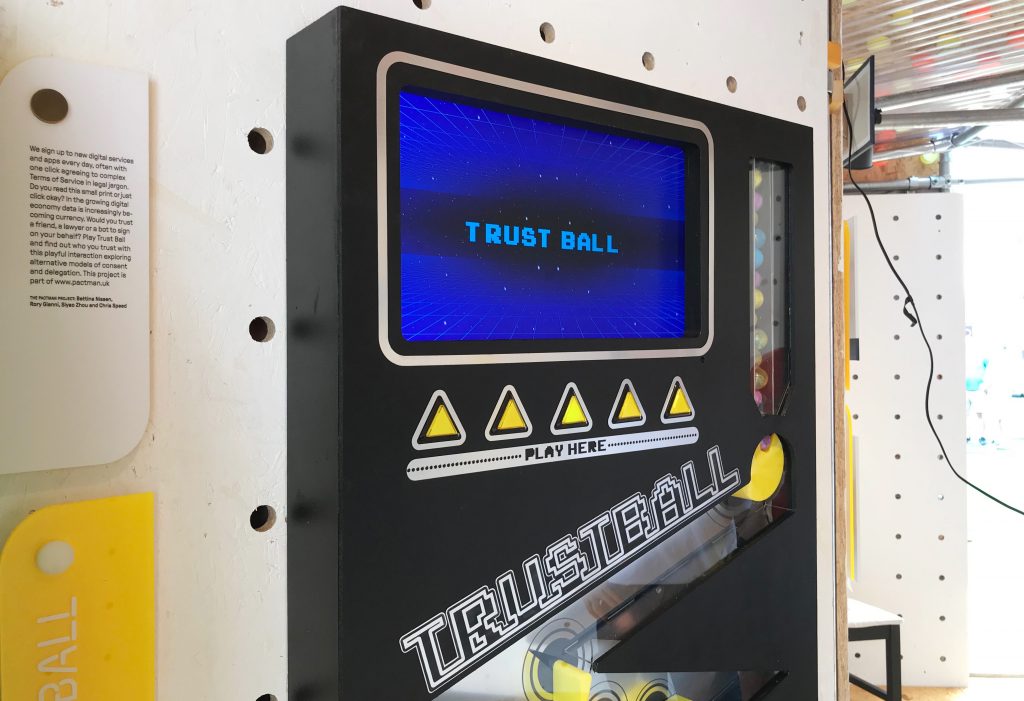
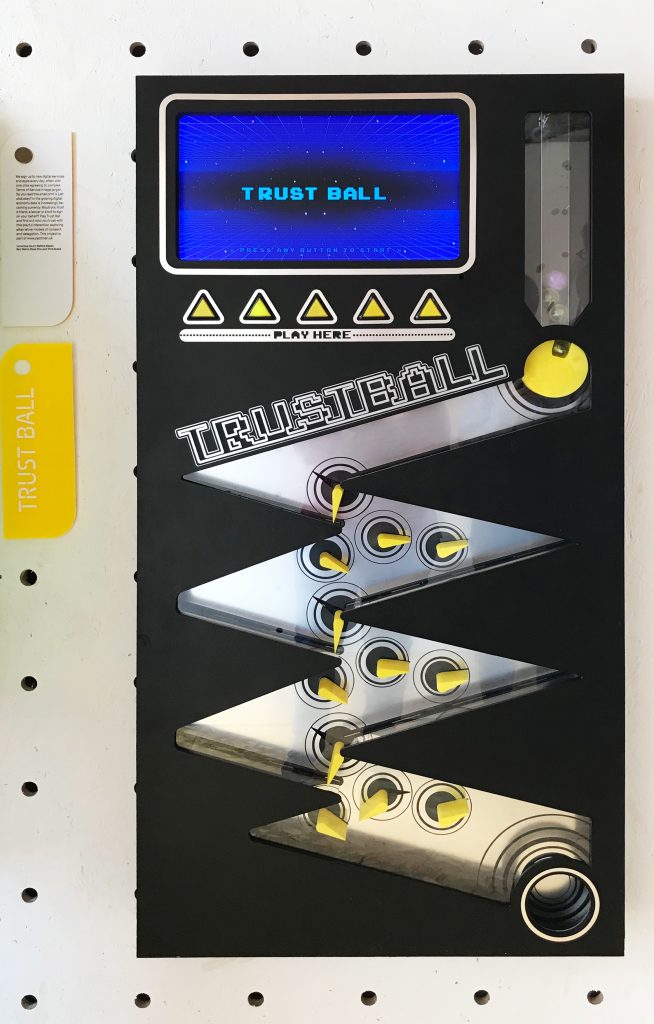
Trustball aims to explore this moment and interaction of digital consent further and question how we might agree to ToS in the future. By playfully engaging audiences with a tangible, arcade-style game, we aim to reveal and challenge people’s ToS practices and explore potential novel practices of delegating consent. The flawed practice of individual’s accepting ToS without reading them has become common place but how can we move away from the individual’s responsibility of accepting consent? By exploring alternative models of consent and delegation, we ask if there could be other models of delegating consent and if so, who would you trust to understand the legal jargon and have your best interest at heart? Would you consider delegating this responsibility to someone else or would you want to remain in control? Who would you trust to advise and accept the right kind of ToS on your behalf – a friend, an expert, a group of people or a bot?
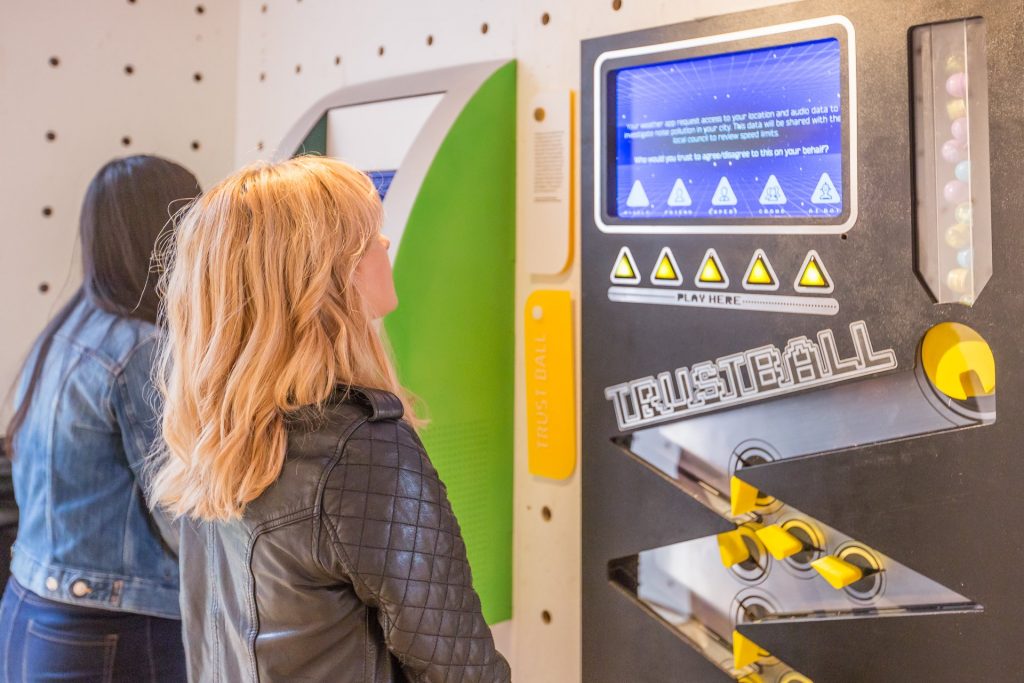
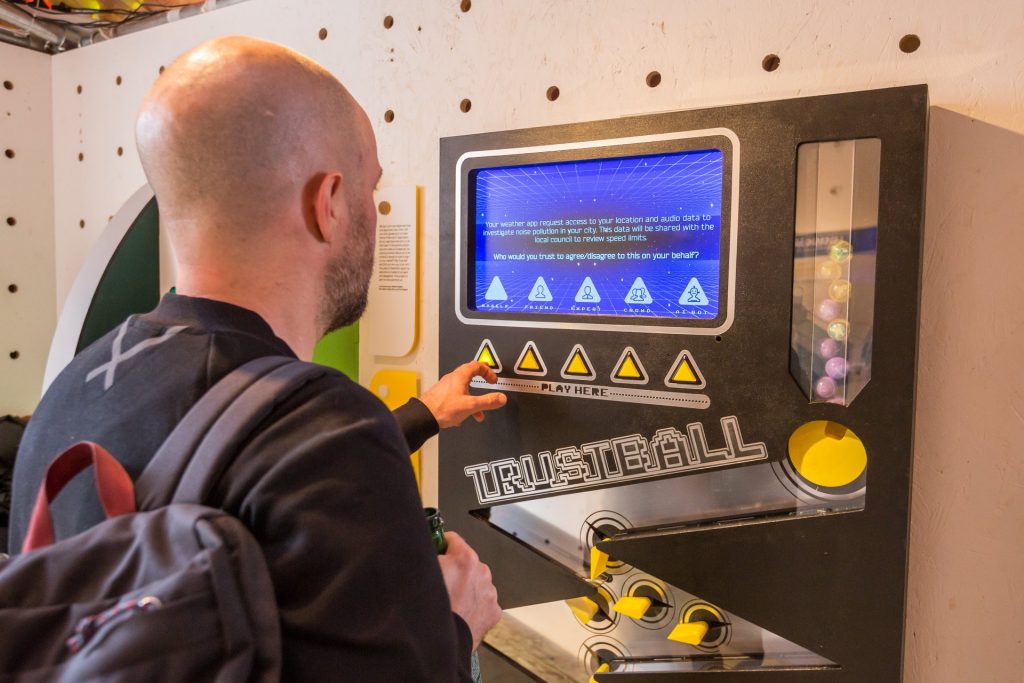
If you would like to play Trustball and see who you would trust with this playful interaction, you can find us outside the Assembly Rooms on 54 George Street in Edinburgh (EH2 2LR) from 2nd – 25th August 2018 (11am–6pm). If you would like to know more about Trustball or have any questions, please email bettina.nissen[at]ed.ac.uk.
